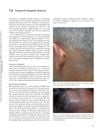 1 citations,
October 2018 in “InTech eBooks”
1 citations,
October 2018 in “InTech eBooks” The document concludes that treatments for cicatricial alopecia are not well-supported by evidence, but hair transplantation shows more predictable and satisfactory results.
 January 2015 in “Hair therapy & transplantation”
January 2015 in “Hair therapy & transplantation” Some botanical products may help increase hair growth in people with alopecia, but more research is needed.
 86 citations,
October 2017 in “Clinics in Dermatology”
86 citations,
October 2017 in “Clinics in Dermatology” Older adults have a high rate of skin cancers like basal cell carcinoma and melanoma, mainly due to UV exposure and age.
 42 citations,
July 2015 in “Journal of The American Academy of Dermatology”
42 citations,
July 2015 in “Journal of The American Academy of Dermatology” The conclusion is that oral contraceptives and antiandrogens can treat hirsutism and acne in women with cutaneous hyperandrogenism, but more research is needed for effective treatments, especially for hair loss.
 April 2012 in “Informa Healthcare eBooks”
April 2012 in “Informa Healthcare eBooks” Temporal triangular alopecia is a lifelong condition with hairless patches on the side of the head that may be present from birth.
 12 citations,
January 2016 in “Skin appendage disorders”
12 citations,
January 2016 in “Skin appendage disorders” Repeated botulinum toxin injections for forehead wrinkles may cause hairline recession in some women.
 August 2023 in “International Journal For Multidisciplinary Research”
August 2023 in “International Journal For Multidisciplinary Research” Ayurvedic treatment, exercise, and a healthy diet can effectively manage PCOD symptoms.
 February 2024 in “Biomedicines”
February 2024 in “Biomedicines” Hormones like androgens, estrogen, thyroid hormones, and stress hormones can contribute to hair loss, and treatments target these hormonal imbalances.
 October 2023 in “Biomaterials”
October 2023 in “Biomaterials” Nanotechnology could improve hair regrowth but faces challenges like complexity and safety concerns.
 1 citations,
July 2016 in “Elsevier eBooks”
1 citations,
July 2016 in “Elsevier eBooks” Understanding skin structure and development helps diagnose and treat skin disorders.
 101 citations,
April 1994 in “Baillière's clinical endocrinology and metabolism”
101 citations,
April 1994 in “Baillière's clinical endocrinology and metabolism” 5α-reductase is essential for male sexual development and its inhibitors have potential in treating various conditions related to hormone action.
 19 citations,
September 2004 in “Reviews in gynaecological practice”
19 citations,
September 2004 in “Reviews in gynaecological practice” Effective hirsutism management requires identifying the cause, combining new and traditional treatments, and setting realistic expectations for patients.
 5 citations,
March 2023 in “bioRxiv (Cold Spring Harbor Laboratory)”
5 citations,
March 2023 in “bioRxiv (Cold Spring Harbor Laboratory)” Dynamic, light touch is sensed through a common mechanism involving Piezo2 channels in sensory axons.
 67 citations,
January 2013 in “Indian Journal of Dermatology, Venereology and Leprology”
67 citations,
January 2013 in “Indian Journal of Dermatology, Venereology and Leprology” Chronic Telogen Effluvium may resolve after years and is diagnosed by examining the patient's history and clinical signs, with treatment aimed at underlying causes and possibly minoxidil.
 109 citations,
September 2011 in “Human molecular genetics online/Human molecular genetics”
109 citations,
September 2011 in “Human molecular genetics online/Human molecular genetics” New treatments targeting specific genes show promise for treating keratin disorders.
 61 citations,
January 2019 in “American Journal of Clinical Dermatology”
61 citations,
January 2019 in “American Journal of Clinical Dermatology” The cause of Frontal Fibrosing Alopecia is unclear, diagnosis involves clinical evaluation and various treatments exist, but their effectiveness is uncertain.
 18 citations,
January 2016 in “Skin appendage disorders”
18 citations,
January 2016 in “Skin appendage disorders” The paper suggests improving diagnosis and treatment of telogen effluvium but does not recommend a new classification system.
 May 2009 in “Hair transplant forum international”
May 2009 in “Hair transplant forum international” Androgens affect hair growth and shedding, with genetic and non-genetic factors influencing baldness.
 5 citations,
September 2021 in “Dermatology Reports”
5 citations,
September 2021 in “Dermatology Reports” Skin problems like acne and excess hair in PCOS are common and linked to being overweight.
 February 2024 in “International Journal of Molecular Sciences”
February 2024 in “International Journal of Molecular Sciences” Hair loss in Androgenetic Alopecia is caused by genetics, aging, and lifestyle, leading to hair follicle shrinkage and related health risks.
 13 citations,
January 2014 in “PubMed”
13 citations,
January 2014 in “PubMed” Adiantum capillus-veneris Linn reduced hair loss and improved hair growth in mice with testosterone-induced alopecia.
24 citations,
August 2020 in “JAMA dermatology” Persistent radiation-induced hair loss is dose-dependent, and treatments like topical minoxidil can be effective.
 14 citations,
April 2022 in “Climacteric”
14 citations,
April 2022 in “Climacteric” Menopause causes dry skin, wrinkles, and hair changes, with hormone therapy helping but not recommended just for these issues.
 1 citations,
August 2021 in “Педиатр”
1 citations,
August 2021 in “Педиатр” Endocrine diseases in children often cause skin changes like dryness, redness, acne, hair loss, and more.
Hair proteins in preschool children and their mothers could indicate developmental changes and health status.
106 citations,
February 2014 in “eLife” Lanceolate complexes in mouse hair follicles are essential for touch and depend on specific cells for maintenance and regeneration.
 8 citations,
October 2022 in “Regenerative Therapy”
8 citations,
October 2022 in “Regenerative Therapy” New regenerative treatments for hair loss show promise but need more research for confirmation.
May 2023 in “Experimental Dermatology” Male pattern hair loss may be linked to the developmental origins of hair follicles.
9 citations,
June 2022 in “Plants” Shallot extract may help with hair growth and treating hair loss.
 January 2017 in “Springer eBooks”
January 2017 in “Springer eBooks” The document concludes that scalp health is influenced by complex factors affecting sebaceous glands, including hormones, aging, and various substances.

























